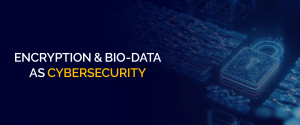

Get 93% OFF on Lifetime
Exclusive Deal
Don’t miss out this deal, it comes with Password Manager FREE of cost.
Get 93% off on FastestVPN and avail PassHulk Password Manager FREE
Get This Deal Now!By Nancy William No Comments 5 minutes
There is no question that data security is a top priority for organizations worldwide. With the proliferation of cyber attacks in recent years, companies are looking for new ways to protect their data. One area that is often overlooked is encryption. Encryption is a powerful tool that can help keep data safe from nefarious actors and improves website security.

However, it is not foolproof. In addition to encryption, another tool that can be used to improve cybersecurity is biometrics. Bio-data can provide an additional layer of security by making it more difficult for attackers to access sensitive information. When used together, encryption and biometrics can provide a strong defense against international cyberattacks.
Encryption and bio-data are key terms often used today in the tech world. Let’s look at it a little bit more in-depth:
Encryption is a way to encode data to maintain privacy and security.
There are many reasons why organizations should implement encryption for their website. One of the most important purposes for it, is that it makes it much more difficult for hackers and other malicious actors to access sensitive information. By using strong encryption algorithms, companies can better protect their data from various cyber threats, such as malware, phishing attacks, and distributed denial-of-service (DDoS) incidents. One of the best ways to implement it, is by using security software like VPNs.
On the other hand, Bio-data refers to any type of personal data related to an individual’s physical or mental characteristics. Examples of this information include name, date of birth, address, biometric information (e.g., fingerprints), and medical history.
Both encryption and bio-data play an essential role in keeping people safe online. However, proper measures must be adopted to ensure the security of this data by individuals and companies alike.
To ensure the security of their citizens, many countries are turning to encryption and biometric data solutions. By encrypting communications and access points, criminals cannot intercept or manipulate confidential information without proper authentication & authorization.
Biometric data is also being used by countries looking to improve the accuracy of identity verification processes. It involves taking measurements from someone’s facial features, fingerprint scans, or even retinal scans, which can quickly identify individuals who require access to restricted areas. Encryption and biometric data solutions have made countries safer for their citizens and helped reduce fraud and crime rates worldwide.
Encryption and bio-data technologies offer many benefits, particularly in terms of security.
Encryption provides a highly secure way to protect sensitive data – such as passwords, financial details or personal information – allowing us to reduce the risk of potential data breaches.
Bio-data recognition, meanwhile, is increasingly being used to authenticate users of digital systems without the need for cumbersome passwords.
Using sophisticated methods such as facial recognition and fingerprint scanning, bio-data technology can help ensure that only the right people have access to secure systems or physical premises.
Both encryption and bio-data technologies are essential in our ever-more digitalised world and are helping to guarantee more significant levels of security for both businesses and individuals.
Implementing encryption and biometric data can present some significant challenges to businesses trying to transition their data and security practices. To properly implement encryption protocols, an organization must invest considerable resources in developing secure hardware and communications infrastructure to support these processes.
Biometric data also presents unique challenges, such as deciding the accuracy necessary for adequate verification and collecting individual biometric patterns.
Other associated costs could include training personnel on securely handling sensitive personal information related to bio-data and ensuring that the correct systems are in place for storing it safely.
Achieving the highest security standards when implementing encryption and biometrics requires careful planning and sufficient resources. Still, the end result can provide invaluable peace of mind for both organizations and individuals.
International cybersecurity is a hot topic today as the world increasingly relies on digital data and devices to communicate, stay organized, and conduct business. For humans to move forward in this digital age, securing our data must be of the utmost importance.
Companies are already beginning to develop best practices for safeguarding confidential information. Still, more collaboration between countries must take place if we are to ensure our modern way of life remains safe.
Organizations worldwide must adopt global standards that prioritize security and breed trust among governments. With increased efforts to secure international borders, there is tremendous potential for developing impenetrable defenses against governmental hacking and malicious cyber-attacks.
The future of international cybersecurity hinges on collaboration and understanding between governments, companies, and citizens alike.
Encryption and bio-data are two essential forms of security that are being used more and more in different countries. Each has its own benefits and challenges, but both are necessary for a secure future. As the world becomes increasingly interconnected, we must find ways to protect our data from those who would do us harm.
© Copyright 2025 Fastest VPN - All Rights Reserved.


Don’t miss out this deal, it comes with Password Manager FREE of cost.
This website uses cookies so that we can provide you with the best user experience possible. Cookie information is stored in your browser and performs functions such as recognising you when you return to our website and helping our team to understand which sections of the website you find most interesting and useful.
Strictly Necessary Cookie should be enabled at all times so that we can save your preferences for cookie settings.
If you disable this cookie, we will not be able to save your preferences. This means that every time you visit this website you will need to enable or disable cookies again.